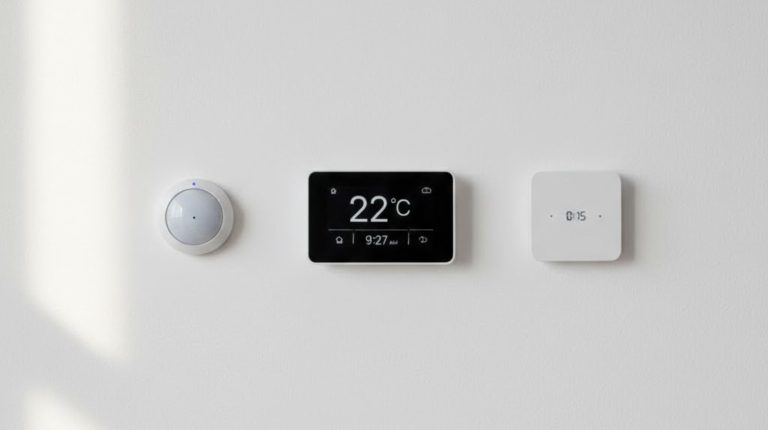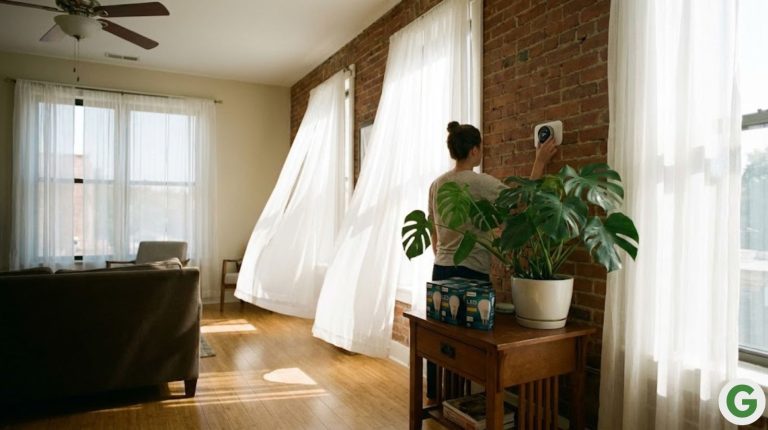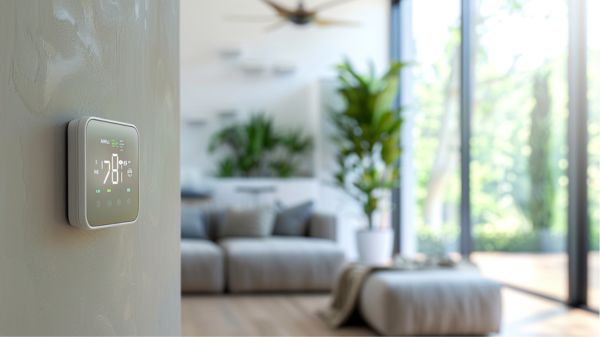In today’s world, where reducing energy consumption and lowering utility bills is a priority, individuals can take simple steps to achieve these goals. This article offers a comprehensive guide on how to slash energy bills with practical energy saving tips.
By leveraging sunlight as a natural heating source and optimizing lighting and appliance usage, individuals can significantly reduce electricity consumption. Additional strategies, such as maximizing fireplace efficiency and conserving water, are explored to minimize energy waste.
Incorporating these straightforward tips into daily routines can result in substantial savings and greater control over energy usage.
Utilizing Sunlight for Heating
Utilizing sunlight for heating can significantly reduce energy consumption and lower your utility bills. One of the key benefits of natural light in homes is its ability to provide passive solar heating. By opening south-facing blinds during the day, you can allow sunlight to enter your home and warm up the space. This maximizes solar heat gain and reduces the need for artificial heating.
However, it is important to close the blinds at night to minimize the chilling effect from cold windows. By taking advantage of natural light for heating, you can not only save on energy costs but also create a warm and inviting atmosphere in your home.
Turning Off Lights and Appliances
How can you effectively reduce your energy bills by turning off lights and appliances?
One simple step is to replace traditional incandescent bulbs with energy-saving light bulbs. These bulbs use less electricity and can last up to 25 times longer, resulting in significant cost savings over time.
Additionally, consider using smart power strips, which can automatically turn off power to appliances that are in standby mode or not in use. This eliminates the energy wasted by devices that continue to draw power even when not actively being used.
Fireplace Efficiency
Improving fireplace efficiency is essential for reducing energy bills and maximizing heat utilization. One way to enhance fireplace efficiency is by using a fireplace insert. A fireplace insert is a device that fits into the existing fireplace, creating a closed combustion system. This helps to increase heat output and reduce heat loss. Benefits of using a fireplace insert include improved heat distribution, increased heating efficiency, and reduced energy consumption.
Properly cleaning and maintaining the fireplace is also crucial for optimal efficiency. Regular cleaning of the fireplace and chimney prevents the buildup of creosote, a flammable substance that can reduce airflow and increase the risk of chimney fires. It is recommended to have the fireplace and chimney inspected and cleaned annually by a professional chimney sweep. Additionally, using dry and well-seasoned firewood can improve efficiency and reduce the amount of smoke and pollutants emitted.
Following these tips will ensure that your fireplace operates efficiently, saving energy and reducing your energy bills.
Water Conservation
To conserve water and reduce your energy bills, implement these simple tips.
One effective way to reduce hot water usage is by turning off the water when washing hands, brushing teeth, and shaving. This small action alone can save you around $21 per year.
Another way to conserve water is by installing low flow faucets. These faucets are designed to reduce the amount of water flowing through them without compromising functionality. By using low flow faucets, you can significantly decrease your water consumption and save on your energy bills.
Furthermore, reducing hot water usage not only helps in conserving water but also contributes to energy savings, as heating water requires energy.
Insulating Windows
To further maximize energy efficiency and reduce heat loss in your home, focus on insulating windows. Double pane windows offer several advantages in terms of insulation. The two layers of glass with a layer of air or gas in between act as a barrier, reducing heat transfer and preventing drafts. This can result in significant energy savings and a more comfortable living environment.
Additionally, there are several DIY window insulation methods that you can try. Covering drafty windows with heavy-duty, clear plastic sheeting or film can provide an additional layer of insulation. Make sure to ensure a tight seal to reduce air infiltration and save on heating costs.
Energy-Efficient Laundry
To further enhance energy efficiency in your home, incorporating energy-efficient laundry practices is essential. One way to achieve this is by using energy-saving laundry appliances. Look for models that have an Energy Star rating, as they are designed to consume less electricity and water.
Additionally, using eco-friendly laundry detergents can make a significant difference. These detergents are formulated with biodegradable ingredients that are gentle on the environment and your clothes.
Another tip is to hang dry at least 50% of your weekly laundry. This simple action can save you around $47 a year. If you prefer using a dryer, toss in a dry towel with your wet clothes to reduce drying time and save energy.
Miscellaneous Tips
Implementing small changes in your daily routine can lead to significant savings on your energy bills. Reducing standby power and maximizing natural daylight are two effective ways to achieve this.
Standby power, which accounts for about 10% of annual electricity use, can be reduced by simply unplugging unused electronics. This can result in savings of up to $50 per year.
Additionally, taking advantage of natural daylight can help reduce the need for artificial lighting during the day, further cutting down on energy consumption. Open south-facing blinds during the day to allow sunlight to heat your home, and close them at night to reduce the chilling effect from cold windows.
Summary and Conclusion
By implementing the miscellaneous energy saving tips mentioned earlier, you can achieve significant energy savings and make a positive impact on both your energy bills and the environment.
Conserving energy is not only beneficial for your wallet, but it also plays a crucial role in preserving our planet for future generations. The importance of long-term energy savings cannot be emphasized enough.
Simple actions like utilizing sunlight for heating, turning off lights and appliances when not in use, and insulating windows can lead to substantial savings over time. Additionally, practicing water conservation and adopting energy-efficient laundry habits can further contribute to reducing your energy consumption.




